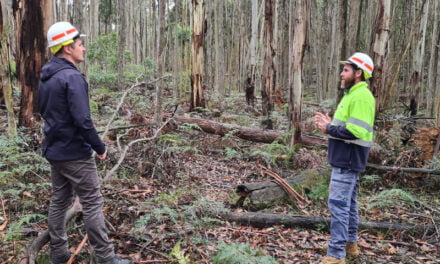Consultation needs to be genuine to count, but that brings its own benefits.
The importance of genuine consultation with employees was very much in the spotlight recently when a Full Bench of the Fair Work Commission overturned BHP’s Covid-19 vaccine mandate at the Mt Arthur open cut coal mine.
The Full Bench determined that the vaccine mandate was a lawful direction but also found that it wasn’t reasonable because, in its view, BHP had failed to satisfy its duty to properly consult employees on the matter.
To be legally valid, directions need to be both lawful and reasonable.
Consultation requirements are legislated in Workplace Health and Safety legislation and are also mandatory provisions in modern awards and enterprise agreements. They could also be binding via employment contracts and company policies.
As a result, a failure to properly consult people about the introduction of change that affects them can result in complaints in multiple jurisdictions.
What is consultation?
Genuine consultation involves all of the following steps:
- Informing people about an issue that could affect them.
- Providing the information that they need to properly understand the issue, why it is an issue and how it could affect them.
- Providing people with the information in a form that they can understand, eg for people who are not fluent in English, it might be necessary to provide a translated version or use an interpreter.
- Giving people reasonable time to consider the matter and to ask any questions.
- Listening to what people have to say about the matter, what you propose to do about it and whether there are any alternatives.
- Genuinely considering the feedback.
- Making your decision as to what you are going to do and developing a plan for implementing it having regard to the feedback that you have received.
- Communicating your decision and the plan to people and the reasons for your decision and implementing it.
So, it is far more than just telling people that you are changing something.
As WorkSafe Victoria puts it: “Consultation means giving employees the chance to shape health and safety decisions and actions taken by their employer.”
That doesn’t mean that you have to comply with everything that employees might raise but you should give their suggestions reasonable consideration and explain your reasons for accepting or not accepting or modifying their suggestions.
Consultation and fair work
Under the Fair Work system, there are also consultation obligations in relation to the introduction of change which has impacts on people in the jobs that they do, in the hours that they work, in the places where they work, in the technology that they use and in redundancy situations among other things.
In fact, for a redundancy to be genuine, one of the three criteria that must be satisfied is that the consultation provisions in the relevant industrial instrument (ie the applicable modern award or enterprise agreement) must have been complied with. If they are not, that makes it an unfair dismissal and that can result in reinstatement of a dismissed employee or a commercial settlement to resolve the unfair dismissal claim.
The positive side of consultation
Giving people a genuine voice in decision making in businesses is known to be one of the essential ingredients in developing a high performing and engaged workforce.
We believe that, rather than seeing consultation as just a legal obligation, you can approach it as a great opportunity to engage your people in a positive way.
One way to do that is to establish what we call ‘Better Workplace Teams’ with employee representatives from across the business who work together with management on how to make their workplace better.
Matters requiring formal consultation are dealt with just as part of the business that this group looks after because the people involved are always talking about how to make things better.
You might also be surprised at what the diversity of skills and experiences that workers might bring to the table can come up with in perspectives and solutions that have real value.
This changes the dialogue in organisations and assists the introduction of change because it builds trust and people develop confidence in the process.
Of course, that’s provided management treats it seriously and genuinely engages with the Better Workplace Team (and the people involved) and actively supports them in bringing about positive change in the quality of the employment experience for everyone.
In conclusion
People have a right to be properly consulted on matters that affect them at work – there is no getting around that and it is very risky not to do that.
Looking at it from the other direction, what untapped opportunity is there if you get on the front foot in giving employees a real say in your workplace?
Peter Maguire is the owner and practice leader of Ridgeline HR, an award winning HRM consulting practice which he founded in 2000. Peter is an acknowledged expert in workplace relations compliance and also a high-performance leadership coach with over 40 years’ experience in HRM. Ridgeline HR’s byline is Helping PEOPLE in BUSINESS and that is essentially what Peter does – help business people with their people business.










